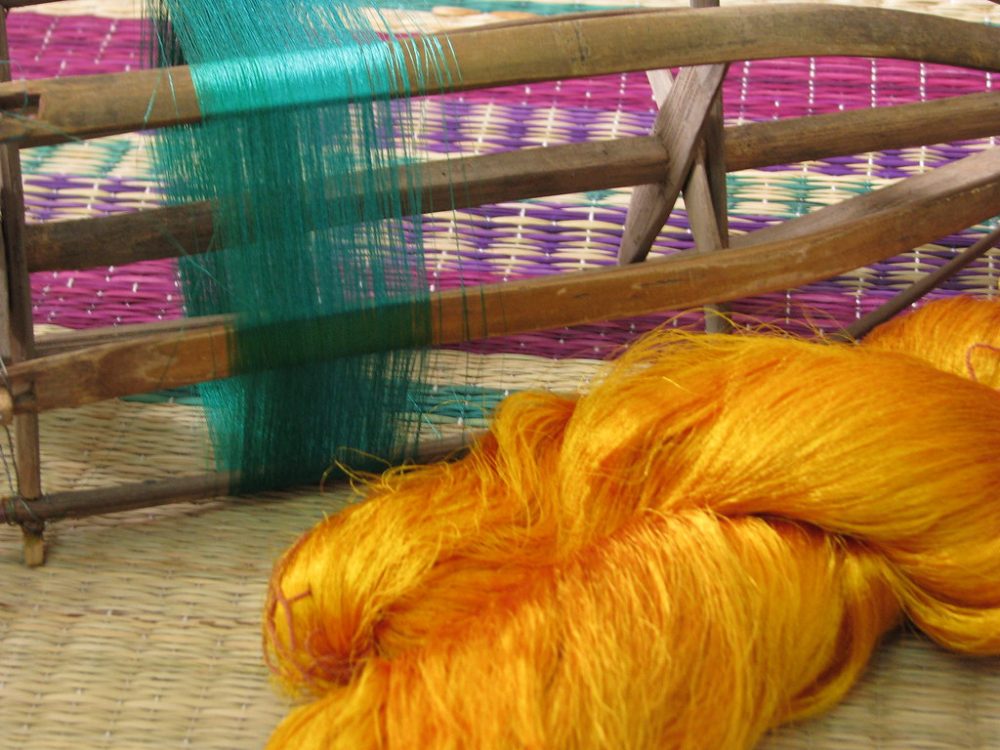
Jammu: Jammu and Kashmir Administration has approved a project worth Rs 91 crore for the revival and revitalization of silk industry in the Union Territory through technological interventions, an official said on Sunday.
The project which contains end to end interventions, right from availability of mulberry leaves to better seed and worm production and finally augmentation of reeling facilities, shall double the number of cocoons produced in J&K and boost value addition by establishment of an automatic reeling facility at Jammu, the official said.
Jammu and Kashmir is known for its high-quality bivoltine silk and has the potential to become a major silk producing hub in the country.
The industry has faced challenges in recent years and there was a need for its development and modernization in order to meet the growing demand for superior silk which can match and replace not only the silk being imported to the country but also compete in its export requirements abroad.
“Sericulture is the only cash crop that ensures significant returns in a short span of time, earning it a special place in the rural economy. Although the state produces high-quality bivoltine cocoons, productivity and total cocoon output are low”, Additional Chief Secretary, Agriculture Production Department, Atal Dulloo said, highlighting the broad contours of the sanctioned project.
Similarly, he said cocoon yields are half of the national average and over the past few years the output from the sector has been shrinking.
“Improving seed quality, rearing facilities and cocoon processing will provide a huge shot in the arm for the sector and improve income at farm levels,” he added.
He said technological interventions to strengthen sericulture in J&K is one among the 29 projects, which were approved by the Jammu and Kashmir administration after being recommended by the UT Level Apex Committee for holistic development of Agriculture and Allied Sectors.
“One of the main challenges facing the sericulture industry in J&K is the lack of access to modern technology. Many farmers still use traditional methods of silk production, which are time-consuming and labor-intensive as well as sub-par in terms of quality of output,” Director Sericulture Manzoor Qadri said.
He said this makes it difficult for them to benefit from the 250-million-dollar export market for Indian Silk.
“The project shall ensure that the global fame which silk from J&K has garnered will be regained,” he added.
The official said the major interventions that are being undertaken in the project included planting 10 Lakh new mulberry plants in tree mode, doubling the silkworm seed production from 8 lakh to 16 lakh, increasing cocoon production from 700 MT to 1350 MT, establishing 100 new chawki rearing centers for supply of chawki worms to seri farmers, giving employment to 7,000 new silkworm farmers and skill development of existing 15,000 farmers.
